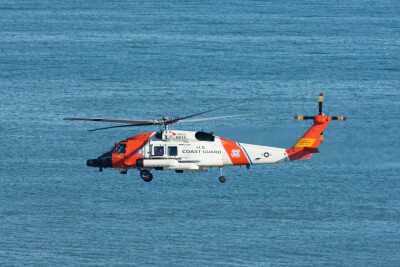NOAA’s announcement that it intends to use commercial vessels to conduct trawl surveys in the Northeast is the best news New England groundfishermen have heard in quite some time.
Bill Karp, a career scientist with NOAA, helped to make the shift to completing surveys on commercial vessels. He is set to retire in September. NOAA photo.Stock assessments have long been a bone of contention for fishermen in New England, as elsewhere. By placing scientists on commercial vessels, the agency will put experts at designing gear and catching fish together with experts at analyzing data. The result is certain to be a much-enhanced picture of what is going on in the ocean.
Commercial fishermen are more likely to believe they’re getting a fair shake if they can trace the line from survey to quota. Conservation advocates, to say nothing of the public, will know that catch limits fairly and accurately reflect conditions in the resource.
New Bedford’s Center for Sustainable Fisheries called the announcement a “cause for celebration.” In Gloucester, Mass., the Northeast Seafood Coalition also welcomed the news and pointed out that fishery dependent data implies greater sampling density and improved survey design.
It has been fashionable in some quarters to portray commercial fishermen as opponents of science. Adherents of this point of view contend that the industry’s priority is ensuring its presence on the grounds when the last fish is caught and assert that the regional councils routinely yield to pressure to increase harvests. Hopefully, the industry’s embrace of the survey plan will put that folly to rest, for once and for all.
Much of the credit for the agency’s change in direction goes to Bill Karp, a career scientist with NOAA who has been director of the Northeast Fisheries Science Center since 2012. Karp has long been aware of the wealth of data that day in, day out is dumped onto the decks of fishing vessels. He was the architect of the global Conference on Fishery Dependent Information in Galway, Ireland, in 2010. The agency estimates the transition will take five years to complete. Karp recently announced that he will be retiring from the agency at the end of September. The industry stands ready to secure his legacy.







